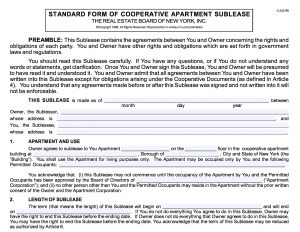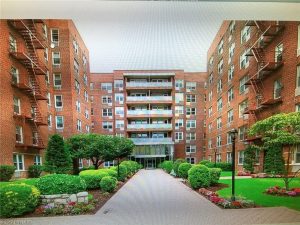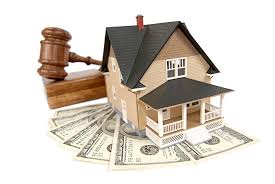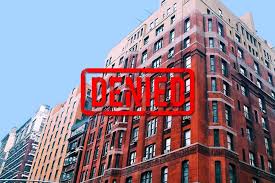 Previous blog posts have discussed potential cooperative rule violations and the procedures to be followed by the co-op when a shareholder violates provisions of the proprietary lease or the house rules. This post will discuss more specifically the issues which arise when a shareholder attempts to sublet their co-op apartment to another person.
Previous blog posts have discussed potential cooperative rule violations and the procedures to be followed by the co-op when a shareholder violates provisions of the proprietary lease or the house rules. This post will discuss more specifically the issues which arise when a shareholder attempts to sublet their co-op apartment to another person.
It first should be noted that most co-ops have in their proprietary leases specific rules about who can live in the apartment, if they are not the shareholder listed as an owner on the share certificate. It is usually limited to direct relatives, such as one’s spouse, children, parents, domestic partner, and the like. Having these people live in the apartment at the same time as the shareholder is not considered a sublet situation. However, the proprietary lease usually also has rules limiting usage. The shareholder must also be living at the apartment, together with the relatives in or guests question.
To give an example, let’s say the shareholder is elderly and shares the apartment with her adult son. She then decides to move to Florida and wishes for her son to continue living in the apartment in New York. This would most likely be considered a violation of the proprietary lease by the co-op, as the shareholder is no longer living at the unit. Such a violation, if discovered by the co-op, could result in a default notice being issued to the shareholder for having unauthorized persons residing at the apartment. Note again that if the shareholder is living at the unit at the same time with her family, it would probably not be considered a violation. The reasoning behind this is that the co-op wants their units to be owner-occupied and to approve those occupying the apartment. They will allow direct family members to share the unit, but only when the owner is also living there.
 New York Real Estate Lawyers Blog
New York Real Estate Lawyers Blog










